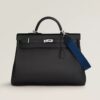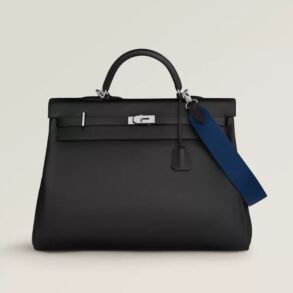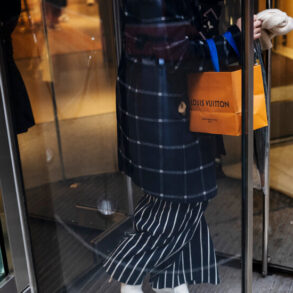Fashion designer
“When I looked at the brand, the website crashed immediately,” Kors testified about Aupen, the label behind a breakout celebrity bag from last year that has also been carried by
Kors was on the witness stand Monday in the second week of a hearing that will decide the fate of a planned $8.5 billion acquisition by
The deal would combine Tapestry’s Coach, Kate Spade and Stuart Weitzman with Capri’s Michael Kors, Versace and Jimmy Choo and create one of the world’s biggest fashion brands. US antitrust enforcers are suing to block the tie-up, claiming it would reduce competition in the market for “accessible luxury” handbags. It’s the US
The companies argue that competition in the handbag market is wildly diverse, ranging from a $2.99 Trader Joe’s tote that went viral to European luxury brands that sell for thousands of dollars. They argue that the acquisition is crucial to revitalize Kors’ stagnant handbag brand.
Kors, 65, told US District Judge
“Sometimes you’ll be the hottest thing on the block, sometimes you’ll be lukewarm, sometimes you’ll be ice cold,” he testified. In recent years his brand has been in decline, he told the court.
“I think we’ve reached a point of brand fatigue,” Kors testified. “It’s in a state of stasis at this point.”
He told Rochon that Capri has been working to bring the brand back to life but that it hasn’t worked, due in part to “financial constraints.” The deal would create the fourth-largest luxury company in the world and the second-largest in the Americas after
Analysts at TD Cowen led by
Testimony is scheduled to wrap up Tuesday. Rochon, who is overseeing the case without a jury, will hear closing arguments on Sept. 30 and then decide whether to issue an order preliminarily blocking the deal while an FTC internal proceeding goes forward. An order delaying the deal would effectively kill it.
During Kors’ testimony, a Capri lawyer asked the designer which brands he considered the rivals to his bags.
“It has become much more elastic — everything from
Sales can skyrocket based on the choices of stars and online influencers, who are often paid to carry particular brands, Kors said. Because of the surge of social media including TikTok, it’s much easier to launch a new brand than it was 10 years ago, and to become a “sensation,” he said.
But he told the judge he was pretty sure that wasn’t the case with mega-celebrities such as Swift, Beyoncé and Madonna.
“None of these brands have the money to pay them,” he said.
The case is Federal Trade Commission v. Tapestry Inc., 24-cv-03109, US District Court, Southern District of New York (Manhattan).
To contact the reporters on this story:
To contact the editors responsible for this story:
Peter Jeffrey
© 2024 Bloomberg L.P. All rights reserved. Used with permission.
This post was originally published on this site be sure to check out more of their content.






